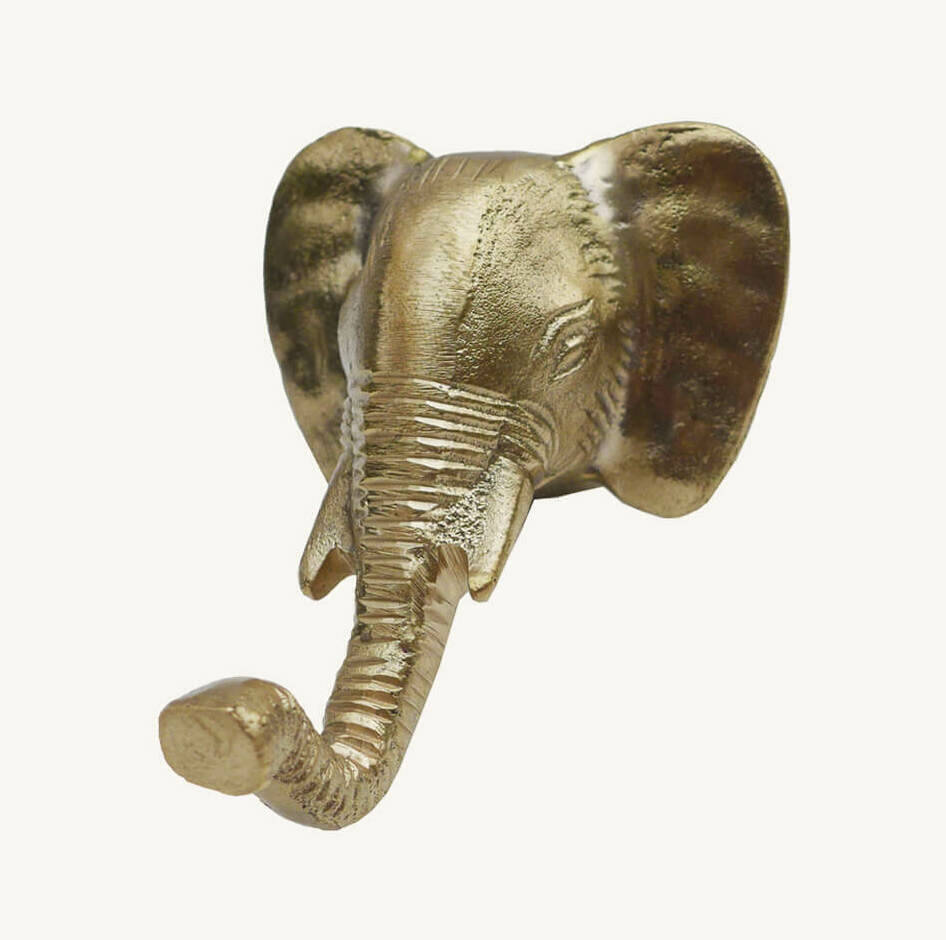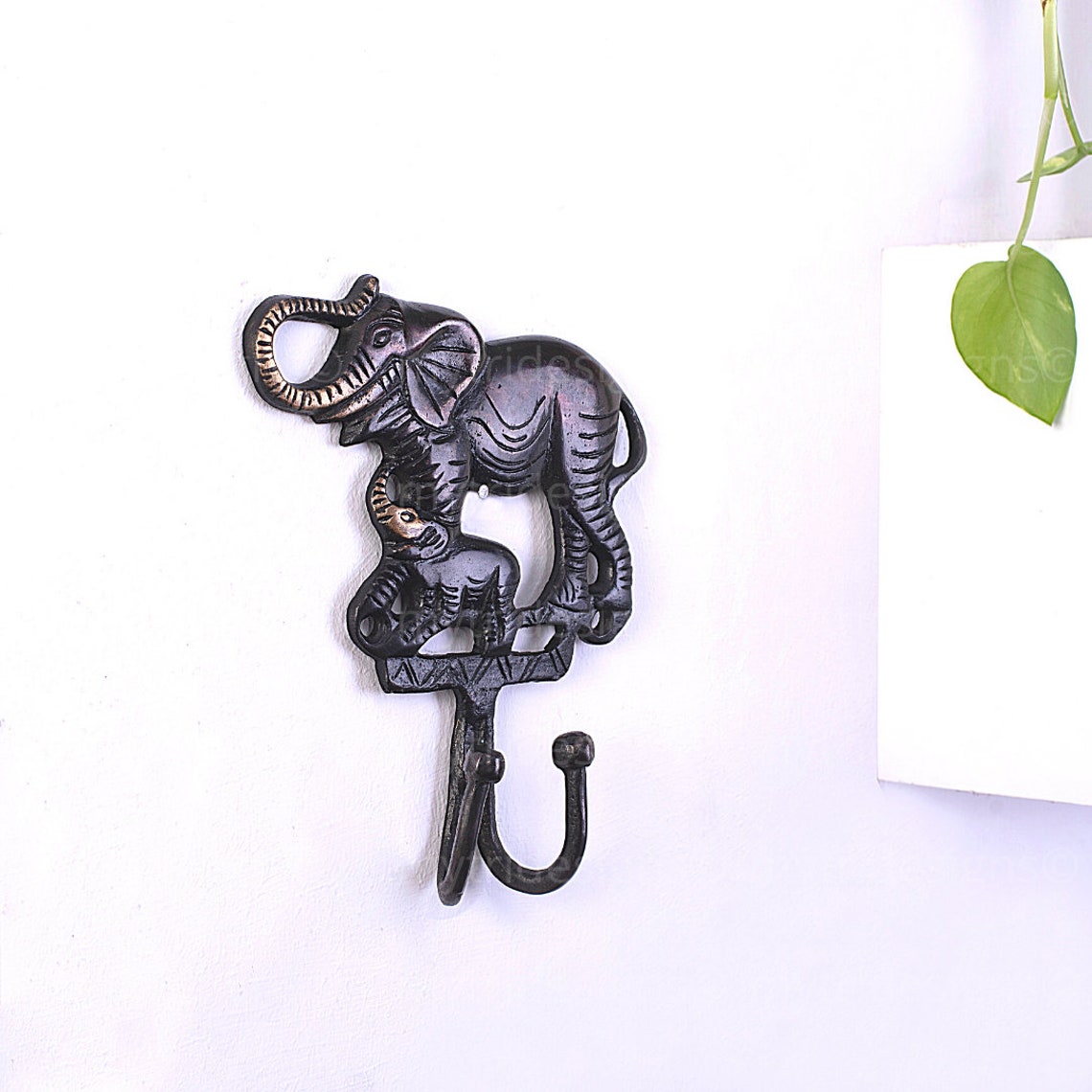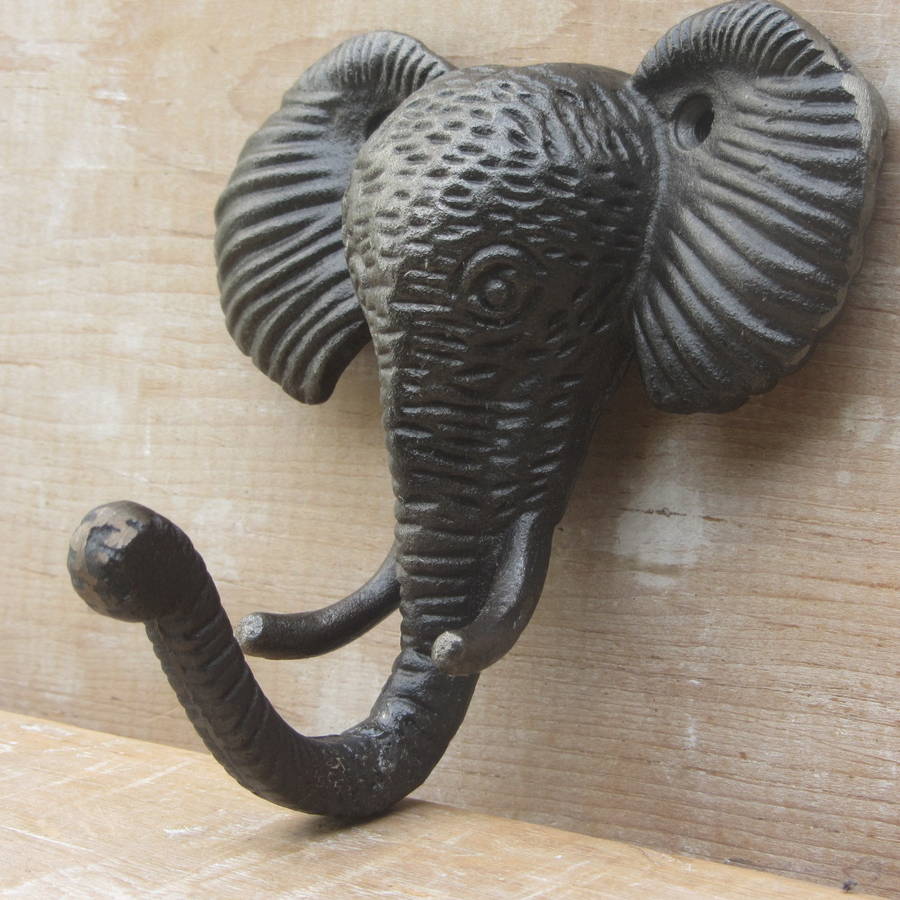What exactly are elephant hooks, and how have they been employed throughout history?
Elephant hooks are sharp, metal hooks attached to the end of a long pole. They have been used for centuries to control and train elephants. The hooks are used to inflict pain on the elephant's sensitive ears and trunk, which forces them to obey commands.
Elephant hooks have been used in a variety of cultures, including India, Africa, and Southeast Asia. They are still used today in some parts of the world, but their use is becoming increasingly controversial due to concerns about animal welfare.
Read also:Discover The Fascinating World Of Matilda Ledger A Glimpse Into Her Life And Legacy
Here are some of the main points about elephant hooks:
- Elephant hooks are sharp, metal hooks attached to the end of a long pole.
- They have been used for centuries to control and train elephants.
- The hooks are used to inflict pain on the elephant's sensitive ears and trunk, which forces them to obey commands.
- Elephant hooks have been used in a variety of cultures, including India, Africa, and Southeast Asia.
- They are still used today in some parts of the world, but their use is becoming increasingly controversial due to concerns about animal welfare.
Elephant Hooks
Elephant hooks are sharp, metal hooks attached to the end of a long pole. They have been used for centuries to control and train elephants. The hooks are used to inflict pain on the elephant's sensitive ears and trunk, which forces them to obey commands.
- Training tool
- Animal cruelty
- Historical significance
- Cultural practice
- Ethical concerns
- Alternatives
- Legal implications
Elephant hooks are a controversial tool that has been used for centuries. While they are effective in training elephants, they also cause significant pain and suffering. There are a number of ethical concerns surrounding the use of elephant hooks, and there are a number of alternatives that are more humane. In recent years, there has been a growing movement to ban the use of elephant hooks.
1. Training tool
Elephant hooks have been used as a training tool for centuries. They are effective in training elephants because they cause pain and discomfort, which forces the elephants to obey commands. However, the use of elephant hooks is controversial because it is considered to be cruel and inhumane.
There are a number of other training tools that can be used to train elephants without causing them pain. These tools include positive reinforcement, such as treats and praise, and negative reinforcement, such as withholding food or water. Positive reinforcement is more effective than negative reinforcement in the long run, and it is also more humane.
The use of elephant hooks as a training tool is declining. In many countries, the use of elephant hooks is banned or restricted. There are a number of organizations that are working to promote the use of more humane training methods.
Read also:Uncover The Secret Drakes Wife Trainer Unveiled
2. Animal cruelty
Animal cruelty is defined as any act that causes pain or suffering to an animal. Elephant hooks are a tool that is used to inflict pain on elephants, causing both physical and psychological harm. The use of elephant hooks is a form of animal cruelty and is illegal in many countries.
Elephant hooks are used to train elephants by causing them pain. The hooks are used to inflict pain on the elephant's sensitive ears and trunk, which forces them to obey commands. However, the use of elephant hooks is not only cruel, but it is also ineffective in the long run. Studies have shown that elephants who are trained using positive reinforcement are more likely to obey commands and are less likely to exhibit aggressive behavior.
There are a number of alternatives to elephant hooks that are more humane and effective. These alternatives include positive reinforcement, such as treats and praise, and negative reinforcement, such as withholding food or water. Positive reinforcement is more effective than negative reinforcement in the long run, and it is also more humane.
The use of elephant hooks is a serious animal welfare issue. Elephant hooks cause pain and suffering to elephants, and they are ineffective in the long run. There are a number of alternatives to elephant hooks that are more humane and effective. The use of elephant hooks should be banned in all countries.
3. Historical significance
Elephant hooks have been used for centuries to train and control elephants. They have been used in a variety of cultures around the world, including India, Africa, and Southeast Asia. Elephant hooks have played a significant role in the history of these cultures, and they continue to be used in some places today.
- Military use
Elephant hooks have been used in warfare for centuries. They were used to great effect by the Carthaginians against the Romans in the Punic Wars. Elephant hooks were also used by the Indian army in the Battle of Kalinga in 261 BC. In more recent times, elephant hooks were used by the British army in the Burmese wars of the 19th century.
- Religious significance
Elephant hooks have also been used in religious ceremonies and rituals. In Hinduism, the elephant hook is a symbol of the god Ganesha. In Buddhism, elephant hooks are used in ceremonies to ward off evil spirits. Elephant hooks are also used in some African religions.
- Cultural significance
Elephant hooks are an important part of the culture of many elephant-keeping communities. They are used in festivals and ceremonies, and they are often passed down from generation to generation. Elephant hooks are also used as a form of decoration.
Elephant hooks have played a significant role in the history of human-elephant interaction. They have been used in warfare, religion, and culture. Elephant hooks continue to be used in some parts of the world today, but their use is declining due to concerns about animal welfare.
4. Cultural practice
Elephant hooks have been used for centuries in a variety of cultural practices. In some cultures, elephant hooks are used as a training tool to control elephants. In other cultures, elephant hooks are used in religious ceremonies and rituals. Elephant hooks are also used as a form of decoration in some cultures.
The use of elephant hooks in cultural practices is often controversial. Some people argue that the use of elephant hooks is cruel and inhumane. Others argue that the use of elephant hooks is a necessary part of certain cultural practices. However, most experts agree that the use of elephant hooks should be limited to those practices that are truly necessary and that the use of elephant hooks should be done in a humane manner.
There are a number of ways to use elephant hooks in a humane manner. One way is to use elephant hooks only when necessary. Another way is to use elephant hooks in a way that minimizes pain and suffering to the elephant. For example, elephant hooks should never be used to inflict pain on an elephant's sensitive ears or trunk.
The use of elephant hooks in cultural practices is a complex issue. There are a number of factors that must be considered when determining whether or not the use of elephant hooks is acceptable. These factors include the cultural significance of the practice, the potential for harm to the elephant, and the availability of alternatives to elephant hooks.5. Ethical concerns
The use of elephant hooks raises a number of ethical concerns. One concern is that the use of elephant hooks causes pain and suffering to elephants. Elephant hooks are sharp, metal hooks that are attached to the end of a long pole. They are used to inflict pain on the elephant's sensitive ears and trunk, which forces them to obey commands.
Another ethical concern is that the use of elephant hooks can lead to long-term health problems for elephants. The use of elephant hooks can cause injuries to the elephant's ears and trunk, which can lead to infection and other health problems. In some cases, the use of elephant hooks can even lead to the death of the elephant.
The ethical concerns surrounding the use of elephant hooks have led to a number of countries banning or restricting their use. In the United States, the use of elephant hooks is banned under the Animal Welfare Act. However, the use of elephant hooks is still legal in some countries, and there is a growing movement to ban their use worldwide.
6. Alternatives
Elephant hooks are a cruel and outdated tool that has no place in the modern world. There are a number of alternatives to elephant hooks that are more humane and effective. These alternatives include positive reinforcement, negative reinforcement, and protected contact.
Positive reinforcement involves rewarding the elephant for good behavior. This can be done with treats, praise, or other forms of positive attention. Negative reinforcement involves withholding something that the elephant wants, such as food or water, when it misbehaves. Protected contact involves keeping the elephant at a safe distance from humans, so that it cannot be harmed.
These alternatives to elephant hooks have been shown to be effective in training elephants without causing them pain or suffering. Positive reinforcement is particularly effective in building a strong bond between the elephant and its trainer. Negative reinforcement can be effective in deterring unwanted behavior, but it should be used sparingly and only when necessary. Protected contact is essential for ensuring the safety of both the elephant and its trainer.The use of elephant hooks is a serious animal welfare issue. Elephant hooks cause pain and suffering to elephants, and they are ineffective in the long run. There are a number of alternatives to elephant hooks that are more humane and effective. The use of elephant hooks should be banned in all countries.7. Legal implications
The use of elephant hooks has a number of legal implications. In many countries, the use of elephant hooks is banned or restricted under animal welfare laws. In the United States, the use of elephant hooks is banned under the Animal Welfare Act. In the United Kingdom, the use of elephant hooks is banned under the Animal Welfare Act 2006. In India, the use of elephant hooks is banned under the Prevention of Cruelty to Animals Act 1960.
- Animal cruelty
The use of elephant hooks can be considered animal cruelty. Elephant hooks are sharp, metal hooks that are attached to the end of a long pole. They are used to inflict pain on the elephant's sensitive ears and trunk, which forces them to obey commands. The use of elephant hooks can cause serious injuries to the elephant, including lacerations, puncture wounds, and infections.
- Negligence
The use of elephant hooks can also be considered negligence. Elephant hooks are a dangerous tool, and they should only be used by trained professionals. If an elephant is injured by an elephant hook, the owner or trainer of the elephant may be held liable for negligence.
- Trespassing
The use of elephant hooks can also be considered trespassing. Elephant hooks are often used to control elephants in areas where they are not welcome. If an elephant is injured by an elephant hook while trespassing, the owner or trainer of the elephant may be held liable for trespassing.
- Assault
The use of elephant hooks can also be considered assault. Elephant hooks are a dangerous weapon, and they can be used to cause serious injuries. If an elephant is injured by an elephant hook, the owner or trainer of the elephant may be charged with assault.
The legal implications of using elephant hooks are serious. The use of elephant hooks can be considered animal cruelty, negligence, trespassing, and assault. If you are considering using elephant hooks, it is important to be aware of the legal risks involved.
Frequently Asked Questions about Elephant Hooks
Elephant hooks are a controversial tool that has been used for centuries to train and control elephants. They are sharp, metal hooks attached to the end of a long pole, and they are used to inflict pain on the elephant's sensitive ears and trunk. The use of elephant hooks has been banned in many countries due to concerns about animal welfare, but they are still used in some parts of the world.
Here are some of the most frequently asked questions about elephant hooks:
Question 1: Are elephant hooks still used today?
Yes, elephant hooks are still used in some parts of the world, but their use is declining. In many countries, the use of elephant hooks is banned or restricted under animal welfare laws.
Question 2: Why are elephant hooks used?
Elephant hooks are used to train and control elephants. They are used to inflict pain on the elephant's sensitive ears and trunk, which forces them to obey commands.
Question 3: Are elephant hooks cruel?
Yes, elephant hooks are cruel. They cause pain and suffering to elephants, and they can lead to long-term health problems. The use of elephant hooks is banned in many countries due to concerns about animal welfare.
Question 4: What are the alternatives to elephant hooks?
There are a number of alternatives to elephant hooks that are more humane and effective. These alternatives include positive reinforcement, negative reinforcement, and protected contact.
Question 5: What can I do to help stop the use of elephant hooks?
There are a number of things you can do to help stop the use of elephant hooks. You can support organizations that are working to ban the use of elephant hooks, and you can educate others about the cruelty of elephant hooks. You can also choose to visit elephant sanctuaries that do not use elephant hooks.
Elephant hooks are a cruel and outdated tool that has no place in the modern world. There are a number of alternatives to elephant hooks that are more humane and effective. The use of elephant hooks should be banned in all countries.
Transition to the next article section:
For more information on elephant hooks, please visit the following resources:
- Animal Welfare Institute
- Born Free Foundation
- World Animal Protection
Conclusion
Elephant hooks are a cruel and outdated tool that has no place in the modern world. They cause pain and suffering to elephants, and they are ineffective in the long run. There are a number of alternatives to elephant hooks that are more humane and effective, and the use of elephant hooks should be banned in all countries.
The use of elephant hooks is a serious animal welfare issue. Elephant hooks cause pain and suffering to elephants, and they can lead to long-term health problems. The use of elephant hooks is banned in many countries, and there is a growing movement to ban their use worldwide. We must all do our part to help stop the use of elephant hooks and to protect these magnificent animals.


